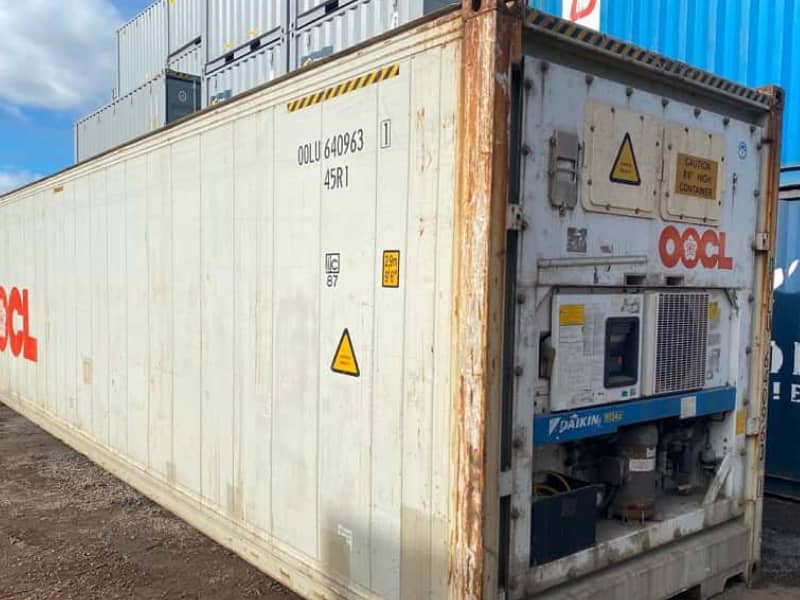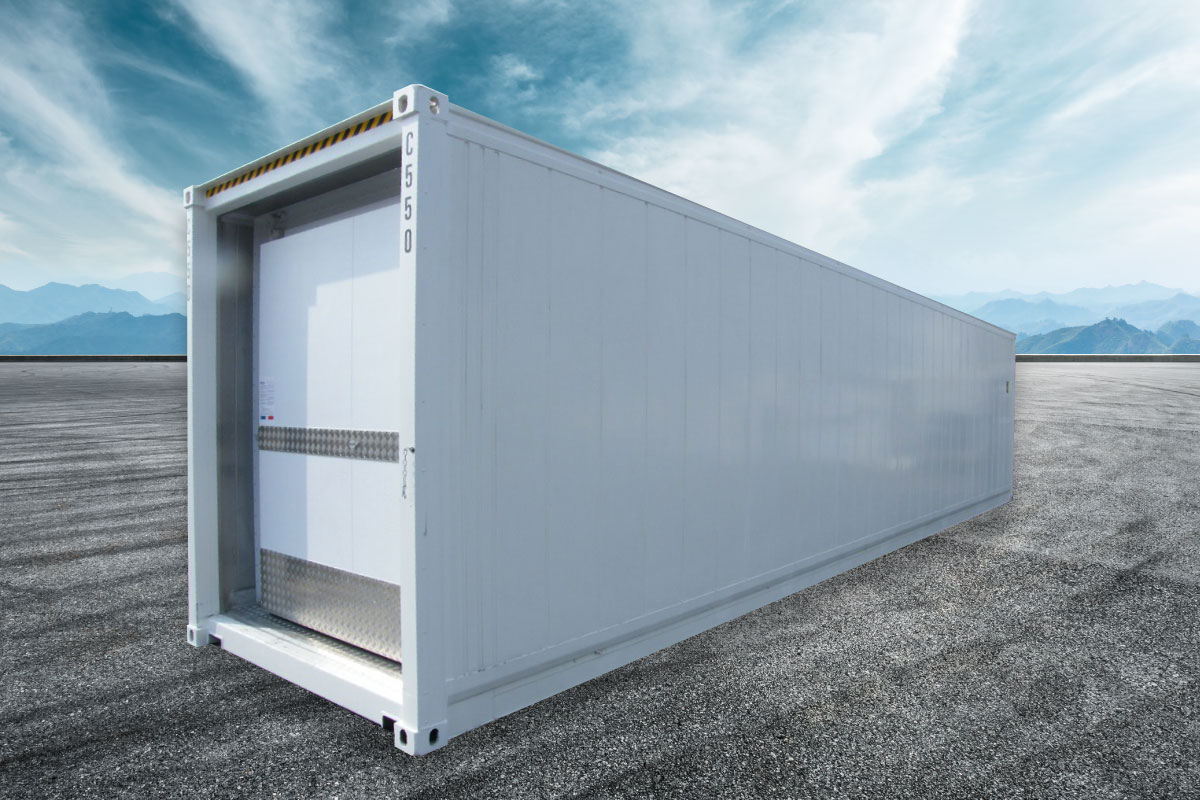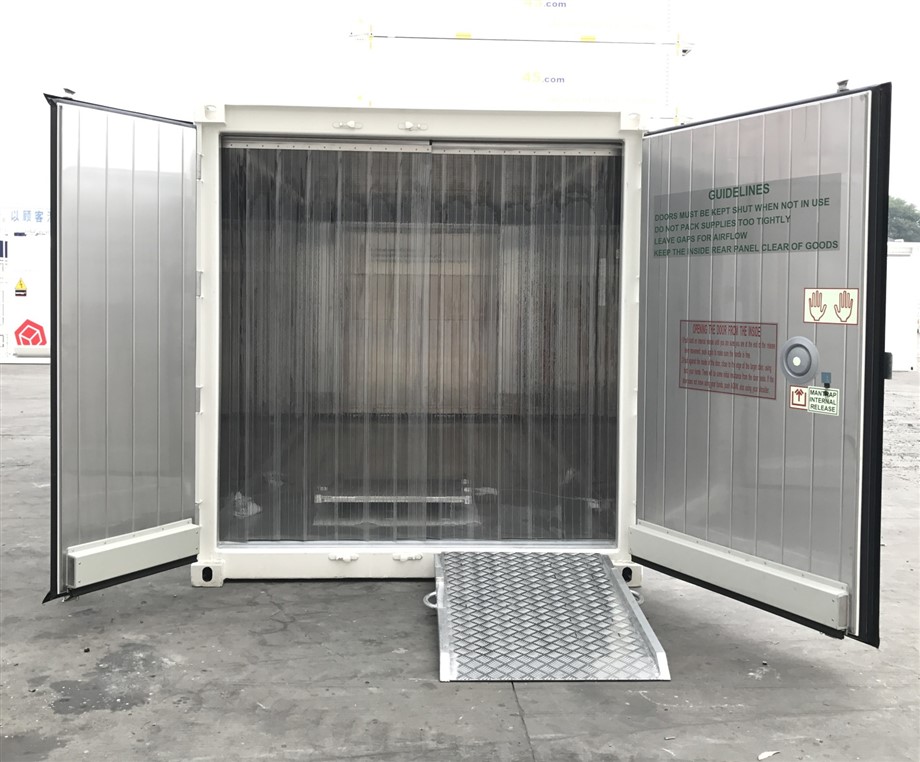Everything About Cold Store Containers: Essential Insights for Your Storage Space Demands
Cold storage containers play an important function in the preservation of subject to spoiling products. They come in various forms, consisting of chilled and insulated devices, each developed for particular storage space demands. Understanding the advantages and crucial features of these containers is important for services aiming to optimize their operations. As the demand for effective storage space services grows, discovering the different options offered can cause notified choices that impact both earnings and sustainability. What elements should one take into consideration when selecting the right container?
Kinds of Freezer Containers
Freezer containers come in different kinds, each designed to satisfy certain temperature control requirements. Among the most typical kinds are cooled containers, which keep temperature levels between 0 ° C to 10 ° C, making them suitable for disposable products like fruits, veggies, and milk products. One more kind is the deep fridge freezer container, which runs at temperature levels below -18 ° C, perfect for lasting storage of icy items such as meats and fish and shellfish.
Shielded containers supply temperature level stability without active cooling, making them beneficial for short-term transportation of temperature-sensitive items. Additionally, there are portable freezer units, which provide versatility in areas and are frequently used in occasions or seasonal procedures. Finally, blast chillers quickly reduce the temperature of warm foods, ensuring safety and top quality. Each kind offers a distinct function in numerous markets, from food solution to pharmaceuticals, stressing the importance of picking the ideal container for certain storage space demands.

Advantages of Using Freezer Solutions

Cold storage space services expand the rack life of items, lowering waste and boosting success for businesses. By successfully handling inventory with correct temperature level control, companies can optimize their supply chains and enhance operational efficiency.
In addition, freezer facilities permit for adaptable storage options, accommodating various quantity requirements and seasonal variations popular (used 40ft refrigerated shipping containers). This flexibility aids services respond rapidly to market modifications
Utilizing cold storage space services can guarantee conformity with health and wellness and safety and security laws, guarding both businesses and customers. Overall, the tactical use of freezer boosts product administration while advertising sustainability and financial viability.
Key Features to Seek in Freezer Containers
When choosing chilly storage space containers, a number of essential functions value mindful consideration to protect peak efficiency and reliability. Temperature level control capacities are essential; containers ought to preserve regular temperature levels suitable for particular items. Insulation top quality also plays a substantial role, as remarkable insulation lowers energy intake and improves temperature level security.
Next off, ease of access and loading is vital; containers ought to offer user-friendly styles for reliable handling and organization. Resilience is an additional essential aspect; weather-resistant materials assure durability and secure components versus ecological factors.
Furthermore, wheelchair functions, such as built-in wheels or raising points, facilitate transport, while adjustable layouts permit tailored storage services.
Last but not least, checking systems, consisting of temperature level alarms and remote monitoring, offer real-time updates, making specific that problems remain optimal. By focusing on these functions, users can pick cold store containers that satisfy their operational needs efficiently.
Picking the Right Freezer Container for Your Demands
Selecting the ideal cold storage space container requires a thoughtful evaluation of particular needs and functional requirements. Elements such as the sort of products being kept, temperature level sensitivity, and volume ought to be focused on. For example, disposable food items might require containers with rigid temperature controls, while pharmaceuticals might need specific conditions to maintain efficiency.
Additionally, potential users need to think about the container's size and flexibility. A larger system might be required for bulk storage space, while smaller, portable choices can be suitable for short-lived or on-site requirements. Insulation high quality and power efficiency are also critical, as these click reference will certainly affect operational costs and temperature security.
Conformity with market policies and criteria is necessary, particularly in industries like food and health care. By carefully examining these aspects, customers can pick a freezer container that properly fulfills their one-of-a-kind needs and assurances ideal storage space problems.
Finest Practices for Preserving Cold Storage Conditions
Maintaining perfect freezer conditions is important for maintaining the quality and safety and security of temperature-sensitive items. Regularly keeping track of temperature and moisture degrees is important; using trustworthy digital thermostats and hygrometers can give exact readings. Proper insulation of cold storage space containers aids decrease temperature variations and power loss.
Carrying out a first-in, first-out (FIFO) system ensures that older supply is utilized prior to more recent stock, decreasing waste (used 40ft refrigerated shipping containers). In addition, preserving an organized format within the storage area permits much better airflow and minimizes the danger of cross-contamination
Routine maintenance checks on equipment, such as seals and compressors, are very important to stop malfunctions. Personnel training on best practices for packing and discharging items helps preserve temperature stability. Keeping doors shut as much as possible limitations warm exchange, ensuring that the cool storage environment continues to be steady and efficient in protecting valuable products.
Price Factors To Consider for Freezer Solutions
When examining cold store solutions, it is essential to consider the preliminary financial investment costs together with recurring operational expenses. An extensive malfunction of these expenses can reveal substantial long-lasting savings capacity for companies. Comprehending these economic aspects helps stakeholders make notified choices regarding their freezer needs.

First Investment Expenses
The financial landscape of cold store containers offers numerous preliminary investment prices that services must think about. These costs typically consist of the purchase or rental rate of the containers, which can differ based upon insulation, kind, and size high quality. Furthermore, expenditures associated to retrofitting existing structures to fit chilly storage needs to be factored in, especially if specialized equipment is needed. Setup expenses, including electrical job and refrigeration systems, also add to the total preliminary financial investment. Companies ought to not neglect transportation costs for delivering containers to their preferred area. Ultimately, potential personalization alternatives, such as shelving or temperature level monitoring systems, can even more influence the first monetary expense. Mindful budgeting for these aspects is vital for successful cool storage execution.
Operational Expenditures Break Down
Functional expenditures for freezer solutions include a number of critical expense factors to consider that organizations need to navigate. Key elements consist of power costs, which can be significant as a result of the need to maintain low temperatures. Maintenance expenses are likewise significant, as routine servicing is necessary to ensure equipment runs successfully and stays certified with health and wellness criteria. Additionally, labor prices may arise from the requirement for specialized staff to check the storage space and take care of atmosphere. Insurance policy expenses are one more factor to consider, as business should shield their investments against prospective losses. Lastly, any prospective governing conformity expenses have to be factored in, as services might require to buy systems that comply with food security and ecological regulations. Comprehending these expenses is important for effective budgeting.
Long-Term Financial Savings Potential
Purchasing cool storage space services provides considerable lasting financial savings possibility, changing preliminary expenditures right into monetary effectiveness over time. By minimizing perishing and waste, organizations can improve their profit margins substantially. Advanced insulation and energy-efficient systems minimize utility prices, which collect over the lifespan of the tools. Cold storage space containers commonly require much less regular maintenance contrasted to conventional refrigeration methods, leading to reduced repair costs. The ability to store products for extensive periods without endangering high quality permits more tips here companies to exploit on market changes, maximizing income. In addition, the scalability of cold storage space solutions makes it possible for companies to adjust to changing needs without incurring too much expenses. Overall, these variables add to a compelling instance for freezer as a cost-efficient investment strategy.
Frequently Asked Questions
For How Long Can Food Be Kept in Cold Storage Space Containers?
The duration food can be saved in cold store containers varies by type. Usually, subject to spoiling items last from days to weeks, while icy foods can stay risk-free for months, relying on correct temperature and storage conditions.
Are Freezer Containers Energy-Efficient?
The energy efficiency of chilly storage containers differs based on style and insulation high quality. Modern devices frequently use sophisticated innovation to lessen power intake, inevitably adding to minimized functional prices and ecological effect in long-lasting usage.
Can Freezer Containers Be Custom-made for Details Demands?
Cold storage containers can certainly be personalized to meet particular requirements. Adjustments may include temperature controls, size adjustments, and additional attributes, permitting individuals to tailor services efficiently for various storage needs and functional choices.
What Are the Typical Sizes of Cold Store Containers?
Cold storage space containers commonly can be found in typical dimensions such as 10, 20, and 40 feet. These measurements fit different storage requirements, guaranteeing flexibility for businesses requiring temperature-controlled atmospheres for perishable goods or delicate materials.
Do Cold Store Containers Require Special Authorizations for Usage?
Cold storage containers often call for special authorizations for usage, depending on regional guidelines and planned applications. Authorities might mandate permits to assure safety criteria, environmental conformity, and proper functional practices are kept during their use.
Cold storage containers come in numerous types, each created to meet details temperature control demands. Additionally, cool storage used 40ft cold storage containers centers allow for adaptable storage choices, accommodating numerous volume demands and seasonal changes in need. Selecting the best cool storage container calls for a thoughtful analysis of operational demands and details needs. The monetary landscape of cool storage space containers provides different first investment expenses that companies need to take into consideration. Cold storage containers can certainly be tailored to fulfill specific requirements.